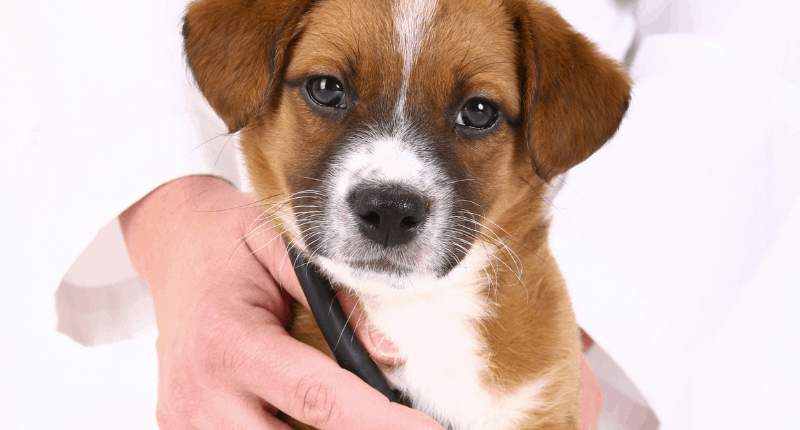An ounce of prevention…
Many people wonder how often they should take their pets to the vet. Some pet parents take their pets yearly. Others, quite honestly, sometimes let a couple of years or more go by between visits. Life happens, but it’s very important to keep your pets on their recommended veterinary schedule! Your veterinary visit schedule will vary by species, age, temperament and especially health and history. But, the bottom line is that veterinarians most often recommend annual and semi-annual visits. Read on for more detailed recommendations, below.
Why should we take our pets to the vet at least yearly?
A year is a long time in dog and cat years and many changes can happen. There are also many viruses that can be fatal if contracted and you can prevent so much suffering if you take your pets in according to the recommended schedule. For example, Feline distemper or feline panleukopenia is a highly contagious viral disease of kittens and adult cats caused by the feline parvovirus. It affects the bone marrow, causes low white blood cell counts, and is most often fatal. Vaccinating your kitties against this is essential. The same goes for your dogs. There are so many lethal viruses that science has provided protection from that there is no reason to not go.
This is a general schedule for how often to take your pets to the vet, according to their ages. Of course, if your pets have medical concerns, you and your veterinarian will make a plan for their visit schedule.
Puppy or kitten, birth to one year:
- Bring your puppies and kittens in every 2 to 4 weeks for their core vaccines until they’re 16 weeks old (speak to your veterinarian about your schedule)
- Puppies get the following shots: rabies, distemper-parvo, and other diseases.
- Puppies might also need shots for kennel cough, influenza, and Lyme disease
- Kittens will get tests for feline leukemia, feline panleukopenia, and feline immunodeficiency virus, and vaccinations that cover several diseases.
- At this stage, your pet will also start heartworm and flea- and tick-prevention medications, if they’re recommended for your area (a MUST in Miami- especially heartworm prevention).
- The vet will examine your pup or kitten to make sure he’s growing well and shows no signs of an illness. She’ll check again at around 6 months, when you bring your pet in to be spayed or neutered.
Adult: 1 to 7-10 years (depends on type & breed of pet)
- Veterinarians recommend annual checkups. Annual checkups will always add years of healthy life to your pets. At middle age they suggest bi-annual check-ups and exams with annual blood work to check all vital organ functions.
- Your vet may recommend other tests based on any problems your pet has or anything unusual she sees during the exam.
- Your pets will get a physical, take a blood sample from your dog to check for heartworms. (Cats normally don’t get tested because the results are hard to interpret.)
- Distemper-parvo and rabies booster shots happen during the first yearly checkup, then usually every 3 years after that. How often animals get rabies boosters depends on state law.
- Catching elevated blood values give the vet team the chance to create plans and diets, supplements and medication to make the pets feel better and can slow the onset of further damage thus lengthening the life. We all want that for our babies.
Senior: 7 to 10 years and older
- Veterinarians suggest twice-yearly checkups for older pets, and might suggest three visits depending on your pet’s medical history.
- For example, your vet may suggest that cats older than 10 go up to three times a year. Cats need regular vaccines as time goes by, whether they’re indoor or outdoor. As they get older, the vet will pay special attention to their digestion, respiratory system and cardiac systems to ensure that they’re in good shape.
- Pets will get vaccinations when needed and will get a thorough physical exam, along with tests to follow up on any problems.
- Your vet may take blood and urine tests to determine your pet’s kidney and liver health, thyroid hormone levels, and more.
- Mention any changes you’ve seen in your pet — if, for example, your cat is drinking more water or your dog is no longer excited by his daily walks. These can be signs of a new problem such as kidney disease or arthritis. Check out our blog on pain awareness for more info on how to tell if your pet is not well.
It can be difficult for some to take their pets in for their recommended veterinary visits, be it due to cost or time constraints. We at Equipaws are happy to help take your pet to the veterinarian for you. You can call or email us with a request for transport and that takes one more thing off your list. We also offer home health care service for pets, so if your precious dog or cat needs daily medications, injections, and the like, we are here to visit you in your home and administer their plan, according to your veterinarian’s instructions.
Need help with ways to pay?
There are also options to help you with the cost of pet health care. Care credit, insurance, and more are worth a look for both dogs and cats and can cover unexpected accidents and illnesses. Here is a list of possible options:
- Care Credit is an option for a payment plan.
- Some veterinary practices offer VitusVet or scratchpay.
- Trupanion
- Pet Life Today
- ASPCA Pet Health Insurance
Did you know that a health care plan (insurance) for cats is so affordable? An example is a policy we looked into from two different companies for 100% coverage in Florida, between $25-$39 dollars a month. Full coverage, 90% reimbursement, $100 deductible. Dogs can run a little higher, but one of our pet care specialists just had a great experience with Trupanion. Her little shih tzu needed emergency back surgery and her plan covered around 85% of this very expensive procedure. She pays around $78 a month for both of her small dogs (around 10 pounds each). Check out the links above and let us know if these options were helpful. Send your pets our love!


